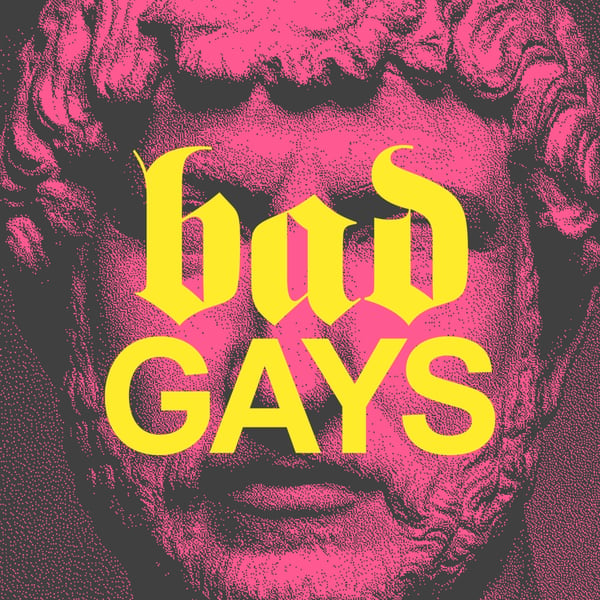Episode 8: Ronnie Kray
Bad Gays
Huw Lemmey & Ben Miller
4.6 • 842 Ratings
🗓️ 7 May 2019
⏱️ 38 minutes
🧾️ Download transcript
Summary
Transcript
Click on a timestamp to play from that location
| 0:00.0 | Before we start, please be aware that today's show contains frank discussions of childhood sexual abuse, and as such, listener discretion is advised. |
| 0:29.0 | Hello and welcome to episode 8 of Bad Gays, a podcast where we uncover the dark side of gay men in history. |
| 0:31.1 | I'm Hugh Lemmy, a writer and novelist. |
| 0:35.0 | And I'm Ben Miller, a writer, gay historian and member of the board of the Gay Museum in Berlin. |
| 0:38.3 | And each episode, we profile a different gay villain from history, looking at their life in context and how their sexuality informed their infamy. |
| 0:42.3 | We want to complicate gay history by talking about evil people and complicated people instead of just heroes. |
| 0:47.3 | We're focusing on cis men because cis men are definitionally the most bad, |
| 0:52.3 | and we're asking why we don't remember our villains as well as |
| 0:54.9 | our heroes. So last week we talked about a Weimar-era gay magazine publisher who provided space |
| 0:59.8 | for lesbians and trans people to express themselves, but also ended up writing favorably about |
| 1:04.9 | fascists. Who are we talking about this week, Hugh? One thing that's been noticeable in this series so |
| 1:09.7 | far, especially of our British subjects, |
| 1:11.7 | such as T. Lawrence and Anthony Blunt, is that the vectors and valences of sexuality of our subjects |
| 1:17.4 | really clearly flavoured by a whole body of assumptions about class and behaviour. |
| 1:22.2 | Today's subject is fascinating for me for the way his life crossed class society at a time |
| 1:26.9 | where a lot of those assumptions were being broken down, |
| 1:29.3 | and when Britain was changing from a very rigid class-based society, to a society which was really rethinking its attitudes, |
| 1:35.3 | both towards homosexuality and towards class. |
| 1:38.3 | In fact, he really encapsulates many of the most important aspects of the 1950s and 60s, and as a result, he's |
| 1:45.6 | become a sort of icon of that area in England, although in a way that really diminishes the severity |
| 1:50.8 | of his crimes. And that's telling in itself as he's become the icon of that era which the British |
| 1:56.6 | have deeply romanticised as a golden age to avoid really examining what lies behind the myths of |
... |
Please login to see the full transcript.
Disclaimer: The podcast and artwork embedded on this page are from Huw Lemmey & Ben Miller, and are the property of its owner and not affiliated with or endorsed by Tapesearch.
Generated transcripts are the property of Huw Lemmey & Ben Miller and are distributed freely under the Fair Use doctrine. Transcripts generated by Tapesearch are not guaranteed to be accurate.
Copyright © Tapesearch 2025.

